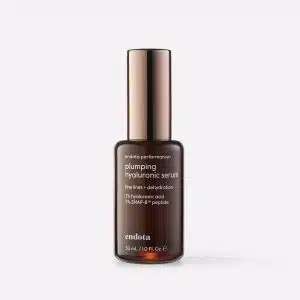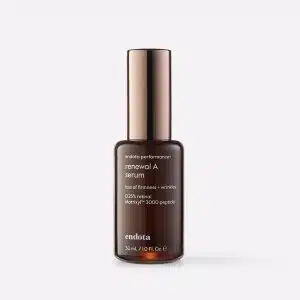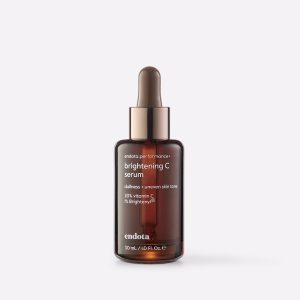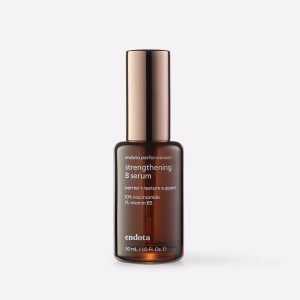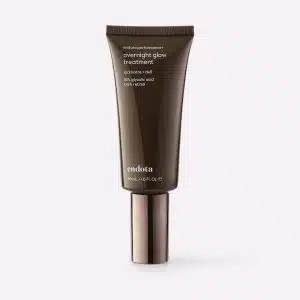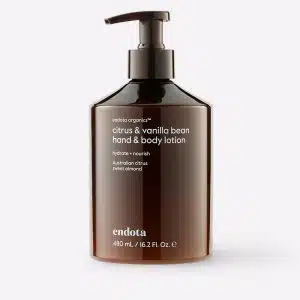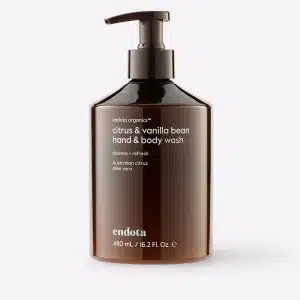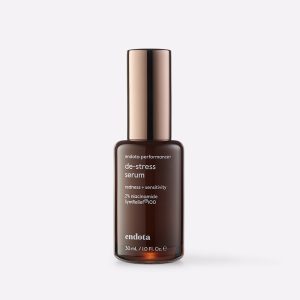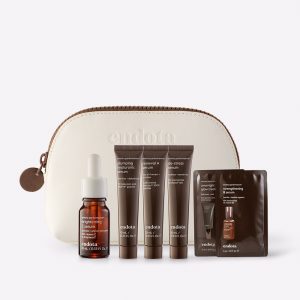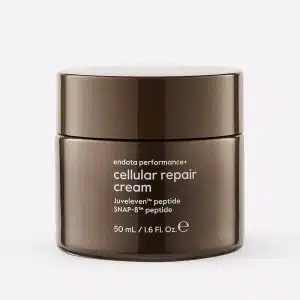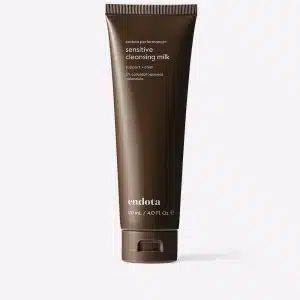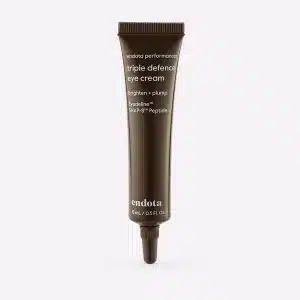Serums have become the basis of modern skincare, and for good reason. Designed to deliver powerfully nourishing targeted ingredients deep into your skin, serums go beyond what cleansers and moisturisers can achieve on their own. Their lightweight, highly concentrated formulas make them one of the hardest-working products in your routine.
But what exactly is a serum? In simple terms, serums are fast-absorbing liquids made with small molecules, which allows them to penetrate deeply and deliver active ingredients where they’re needed most. Whether you’re looking to hydrate, brighten, soothe, or clarify, there’s a serum to nurture your skin’s needs.
benefits of using a serum
Serums benefit all skin types by delivering concentrated ingredients to target specific concerns. Here’s how they can support your skin’s wellbeing:
- Targeted treatment for common concerns: Serums are ideal for addressing specific skin concerns, such as acne, pigmentation, redness, fine lines, and uneven texture.
- Easy layering within your routine: Lightweight and fast-absorbing, serums layer well under moisturisers and SPF, making them easy to integrate into your morning and evening rituals. Plus, different skin types can benefit from different formulas. You might find that layering two synergistic serums (such as one to hydrate and one to brighten) gives you the best results.
- Visible results with consistent use: Thanks to their high concentration of actives, serums can deliver noticeable results over time, especially when used as part of a mindful, consistent routine.
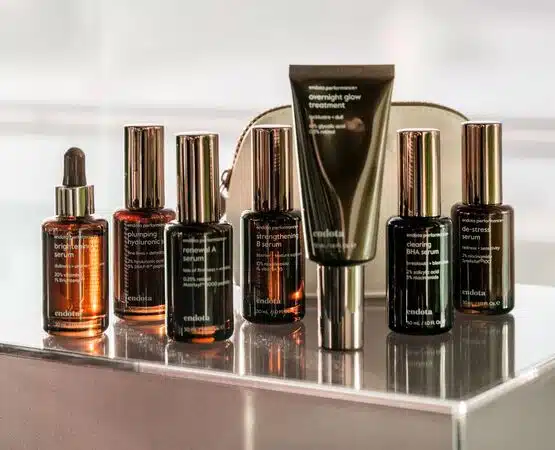
types of serums and what they do
Choosing the right serum depends on your skin type and concerns. Here’s a high-level look at the different types of serums and how they support your skin:
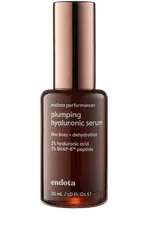
deep hydration
Hydrating serums are dedicated to infusing your skin with essential moisture, plumping it from within and addressing dryness.
Key ingredients: Hyaluronic acid is a star here, capable of holding up to 1,000 times its weight in water, providing profound hydration². Peptides also play a role in improving general skin health and supporting skin’s natural moisture balance.
Best for: Normal to dry or dehydrated skin types will benefit most from these formulas, helping to restore a supple and smooth feel.
endota recommendation:
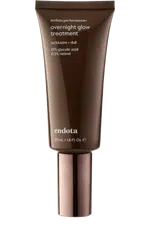
brighter complexion
For skin that’s more radiant and even in tone, introduce a brightening serum into your routine.
Key ingredients: Vitamin C is paramount for brightening, firming, and offering protection against environmental aggressors³. These are most loved vitamin C serum benefits, allowing your skin to be more even-toned and radiant. Vitamin B3 (Niacinamide) also soothes, brightens, and helps to refine the look of pores⁴. Glycolic acid, found in our Overnight Glow Treatment, combats dullness by gently exfoliating the skin’s surface, removing dead skin cells to reveal more radiant skin underneath.
Best for: Most skin types seeking to reduce the appearance of dark spots, improve overall radiance, or combat dullness.
endota recommendations:
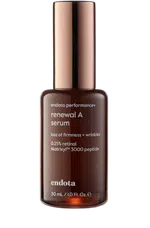
anti-ageing serums
These potent serums are formulated to help diminish the visible signs of ageing, promoting a firmer, smoother, and more youthful appearance.
Key ingredients: Retinal, a form of Vitamin A that’s more potent and faster-acting than traditional retinol, helps speed up cell turnover, even out skin tone, reduce the appearance of fine lines, and target concerns like hyperpigmentation and acne⁵. Peptides support skin structure by helping to firm, lift, and improve overall skin integrity. Vitamin C and niacinamide provide additional antioxidant protection, working to brighten and strengthen the skin barrier for overall skin resilience.
Best for: Mature skin types, or those concerned with fine lines, wrinkles, and loss of firmness.
endota recommendations:
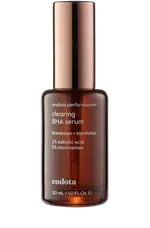
clarifying or acne-fighting serums
These targeted serums work to decongest pores, reduce breakouts, and promote clearer skin.
Key ingredients: Beta-Hydroxy Acids (BHAs) are oil-soluble exfoliants that penetrate deep into the pores to dissolve excess sebum and dead skin cells, making them especially effective for acne-prone skin. One of the most well-known BHAs is Salicylic Acid, which features in our Clearing BHA Serum to help reduce inflammation and visibly clear congestion. Other performance+ ingredients such as Niacinamide (Vitamin B3) help soothe the skin, regulate oil production, and refine pores⁶.
Best for: Oily, congested, or breakout-prone skin.
endota recommendations:
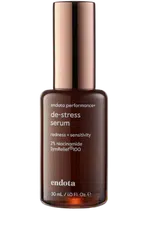
serums to calm and soothe
Designed to comfort and reduce visible redness or reactivity, these serums nourish delicate skin.
Key Ingredients: Vitamin B3 (Niacinamide) is known for its soothing properties, helping to reduce redness and irritation⁷. Ingredients that support the skin barrier can also provide a calming effect.
Best for: Sensitive, red, or reactive skin types seeking gentle care and a sense of balance.
endota recommendations:
FAQs about serum benefits
how do I know which type of serum is right for my skin?
Consider your skin’s needs. Is it dry, dull, reactive, or breaking out? Choose a serum based on your top concerns. You can also take our serum finder quiz or speak with a skin expert at your local endota spa.
can I use more than one serum in my routine?
Yes, you can layer serums. Apply the thinnest formula first, wait a few minutes, then follow with the next.
what makes vitamin C serum so beneficial for the skin?
Vitamin C supports a brighter, more even complexion, boosts collagen, and protects against daily environmental stressors, making it one of the most loved and effective ingredients in skincare.
how long does it take to see results from a serum?
Results vary depending on the formula, but most people notice changes within 4 to 6 weeks of consistent use.
can I use serums every day?
Yes – most serums are gentle enough for daily use and can be part of your morning and evening ritual. Just be sure to check the label for any specific usage notes, especially when using active ingredients. For example, our Renewal A Serum and Overnight Glow Treatment are best used in the evening, should be used once per week before using more frequently to build skin’s tolerance, and should be applied on alternate nights to avoid over-exfoliation.
do I need both a serum and a moisturiser?
Yes. Serums deliver active ingredients deep into the skin, while moisturisers help seal in hydration and support your skin barrier.
FAQs about serum benefits
Our performance+ range of serums is designed to support your wellbeing through skincare. Each formula is made with intentional, results-driven ingredients so you can feel confident in your routine and connected to the way you care for your skin.
Ready to explore which serum is right for you? Explore the full range to find the types of serums that work for your skin and wellness rituals.
discover performance+
Cellular Repair Face Cream
Sensitive Cleansing Milk
Sensitive Repair Moisturiser
references
¹McCall-Perez, F., Stephens, T. J., & Herndon, J. H., Jr. (2011). Efficacy and tolerability of a facial serum for fine lines, wrinkles, and photodamaged skin. Clinical, Cosmetic and Investigational Dermatology, 4, 129–137. Retrieved from https://www.ncbi.nlm.nih.gov/pmc/articles/PMC3140905/
²Lierova, A., Kasparova, J., Filipova, A., Cizkova, J., Pekarova, L., Korecka, L., Mannova, N., Bilkova, Z., & Sinkorova, Z. (2022). Hyaluronic Acid: Known for Almost a Century, but Still in Vogue. International Journal of Molecular Sciences, 23(8), 4429. Retrieved from https://pmc.ncbi.nlm.nih.gov/articles/PMC9029726/
³Murray, J. C., Burch, J. A., Streilein, R. D., Iannacchione, M. A., Hall, R. P., & Pinnell, S. R. (2008). A topical antioxidant solution containing vitamins C and E stabilized by ferulic acid provides protection for human skin against damage caused by ultraviolet irradiation. Journal of the American Academy of Dermatology, 59(3), 418–425. Retrieved from https://pubmed.ncbi.nlm.nih.gov/18603326/
⁴Bissett, D. L., Oblong, J. E., & Berge, C. A. (2005). Niacinamide: A B vitamin that improves aging facial skin appearance. Dermatologic Surgery, 31(7 Pt 2), 860–865; discussion 865. Retrieved from https://pubmed.ncbi.nlm.nih.gov/16029679/
⁵Mukherjee, S., Date, A., Patravale, V., Korting, H. C., Roeder, A., & Weindl, G. (2006). Retinoids in the treatment of skin aging: An overview of clinical efficacy and safety. Clinical Interventions in Aging, 1(4), 327–348. Retrieved from https://pmc.ncbi.nlm.nih.gov/articles/PMC2699641/
⁶Marques, C., Hadjab, F., Porcello, A., Lourenço, K., Scaletta, C., Abdel-Sayed, P., Hirt-Burri, N., Applegate, L. A., & Laurent, A. (2024). Mechanistic Insights into the Multiple Functions of Niacinamide: Therapeutic Implications and Cosmeceutical Applications in Functional Skincare Products. International Journal of Molecular Sciences, 25(9), 4691. Retrieved from https://pmc.ncbi.nlm.nih.gov/articles/PMC11047333/
⁷Marques, C., Hadjab, F., Porcello, A., Lourenço, K., Scaletta, C., Abdel-Sayed, P., Hirt-Burri, N., Applegate, L. A., & Laurent, A. (2024). Mechanistic Insights into the Multiple Functions of Niacinamide: Therapeutic Implications and Cosmeceutical Applications in Functional Skincare Products. International Journal of Molecular Sciences, 25(9), 4691. Retrieved from https://pmc.ncbi.nlm.nih.gov/articles/PMC11047333/
